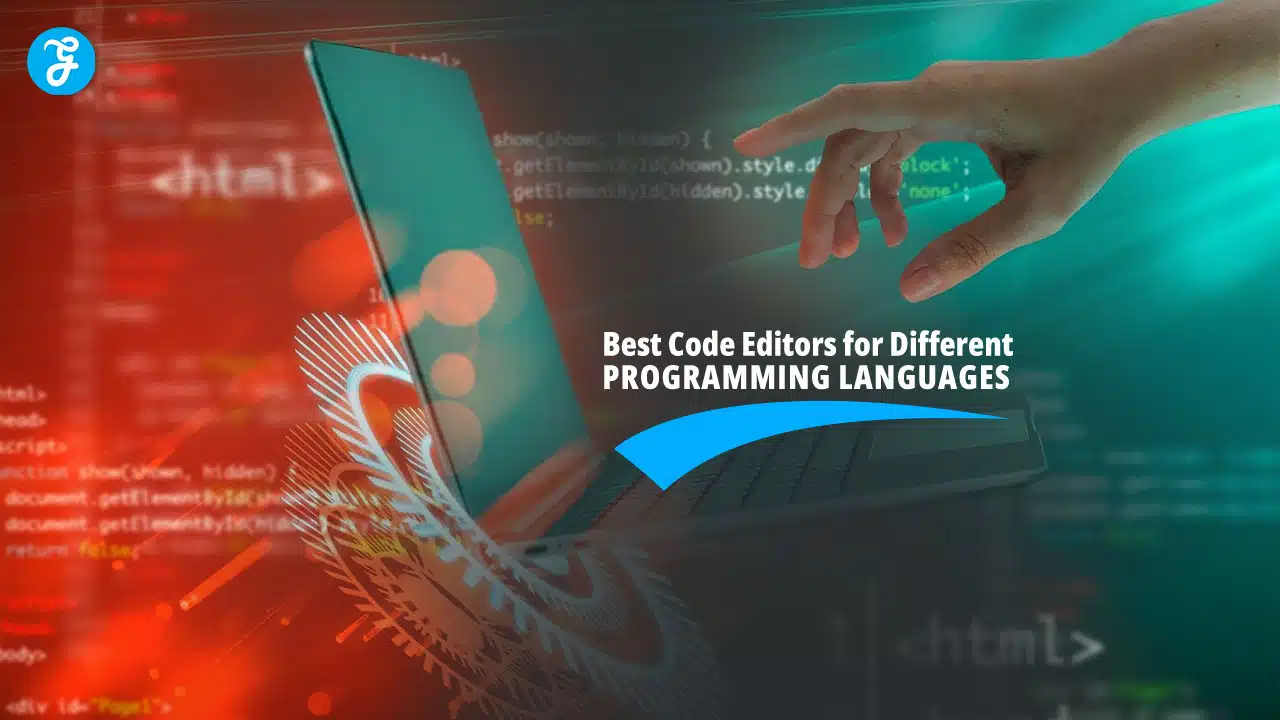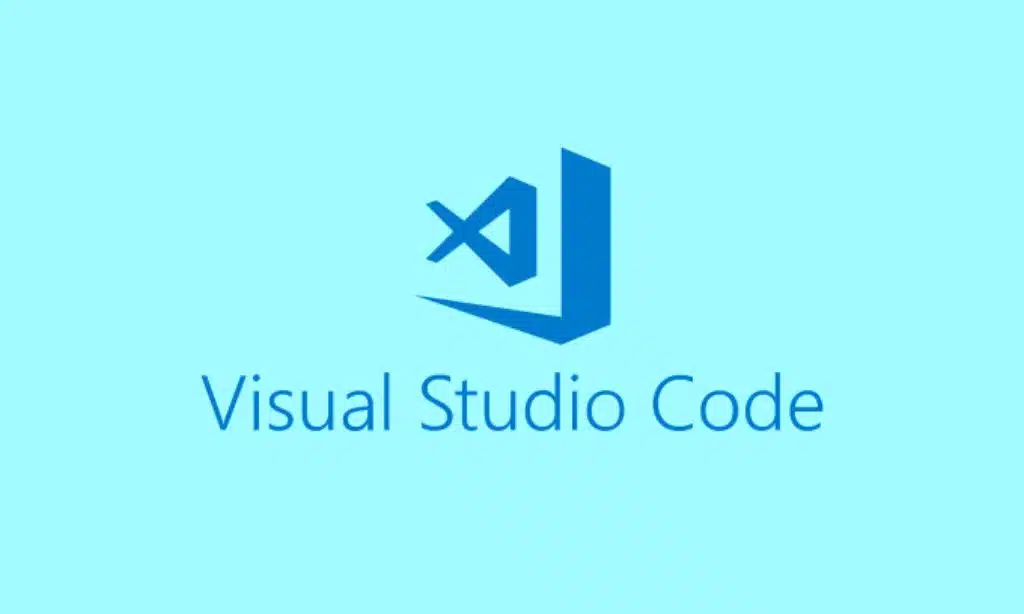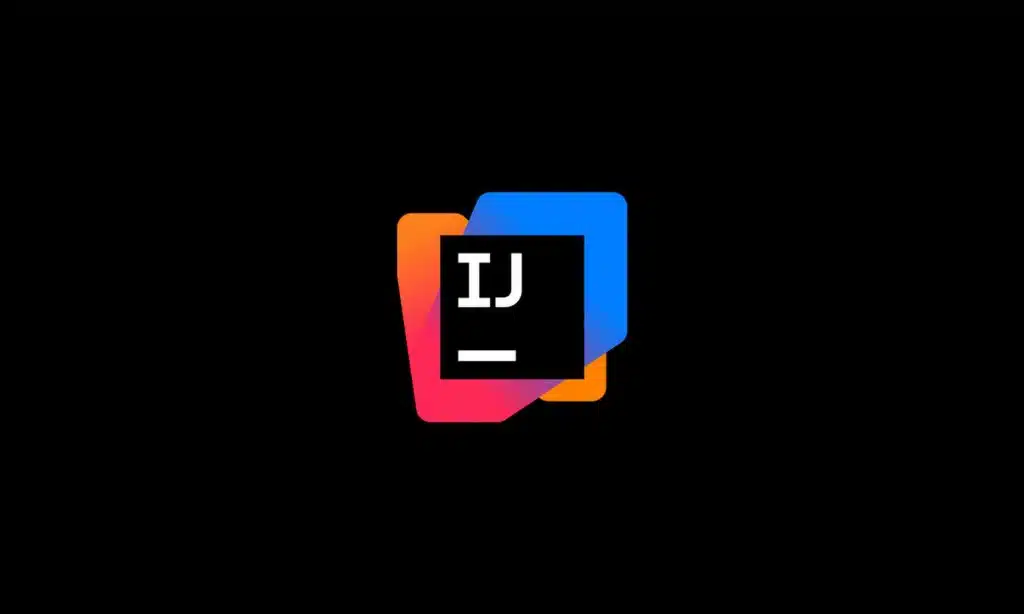Code editors are essential tools for programmers. They help write and organize code efficiently. Different editors work better for specific programming languages.
Choosing the right code editor can make your coding tasks easier and faster. Some editors are great for beginners, while others have advanced features for experienced developers.
It’s essential to pick one that fits your needs and the languages you use most often.
1. Visual Studio Code
Visual Studio Code is a top choice for many programmers. It’s free and works on Windows, Mac, and Linux. You can use it for lots of different programming languages.
VS Code has helpful features like code completion and debugging. These make coding faster and easier. You can also add extensions to make it even more powerful.
The editor is easy to use and customize. You can change colors, fonts, and layouts to fit your style. This helps you work more comfortably.
VS Code updates often. This means you get new features and bug fixes regularly. It also supports version control systems like Git.
One great thing about VS Code is its large community. You can find answers to most problems online. There are also many tutorials and guides available.
For web developers, VS Code is beneficial. It has built-in support for HTML, CSS, and JavaScript. You can also preview your web pages directly in the editor.
If you work with data, VS Code has you covered, too. It supports Python and R, which are famous for data analysis. You can even run Jupyter notebooks in VS Code.
2. PyCharm
PyCharm is a popular code editor for Python developers. It offers many helpful features to make coding easier and faster.
You’ll find intelligent code completion in PyCharm. This helps you write code more quickly by suggesting completions as you type. The editor also checks your code for errors and offers fixes.
PyCharm includes debugging tools to help you find and fix problems in your code. You can set breakpoints, step through your code, and inspect variables.
The editor supports many frameworks like Django and Flask. This makes it great for web development projects. It also integrates with version control systems like Git.
PyCharm has two versions – a free Community Edition and a paid Professional Edition. The Professional version has more advanced features for web and database development.
You can customize PyCharm’s interface to fit your needs. It offers themes to change the look and feel of the editor. You can also adjust the layout of windows and toolbars.
PyCharm works well for both beginners and experts. It has a user-friendly interface that’s easy to learn. More advanced users can take advantage of its powerful features.
3. Sublime Text
Sublime Text is a popular code editor that many developers love. It’s fast, lightweight, and easy to use. You can try it for free or buy a license for $99.
Sublime Text works on Windows, Mac, and Linux computers. It supports many programming languages like C++, Python, PHP, and Ruby on Rails.
One of the best things about Sublime Text is how customizable it is. You can change almost everything to fit your coding style. It also has many shortcuts to help you work faster.
The editor has some excellent features that make coding easier. It can suggest code as you type and help you find mistakes. You can also search for files and commands quickly.
Sublime Text is great for organizing your code. It lets you work on multiple files at once and switch between them easily. You can even split your screen to see different parts of your code.
If you need more features, you can add plugins to Sublime Text. These can check your code quality or connect to version control systems.
While Sublime Text is powerful, it’s not a complete development environment. It doesn’t have built-in debugging tools like some other editors do. But for many coders, its speed and simplicity make it a top choice.
4. IntelliJ IDEA
IntelliJ IDEA is a powerful code editor for Java developers. JetBrains makes it and offers intelligent features to help you code faster and better.
This IDE works excellently for Java but also supports many other languages. You can use it for Kotlin, Groovy, and more.
IntelliJ IDEA comes with helpful tools built-in. It can suggest code as you type and find errors before you run your program.
The editor is smart enough to understand your code. It can predict what you might need next and offer valuable tips.
You can choose between two versions of IntelliJ IDEA. The Community Edition is free and open-source. The Ultimate Edition costs money but has extra features.
IntelliJ IDEA works well with other tools you might use. It can connect to version control systems and databases quickly.
The interface is clean and easy to use. You can customize it to fit your style of coding.
For beginners, IntelliJ IDEA might seem complex at first. But once you learn it, your coding will be much faster.
5. Atom

You’ll find Atom easy to use right away. It has a clean look and simple menus. But you can also change how it works to fit your needs.
Atom supports lots of coding languages. You can use it for C++, Java, PHP, HTML, etc. It highlights your code to make it easier to read.
One cool thing about Atom is that you can work with others in real time. You can share your workspace and edit code together. This is great for team projects.
Atom works well with Git and GitHub. You can do things like commit changes and create pull requests right from the editor. This saves time if you use GitHub a lot.
You can add new features to Atom with packages. There are thousands to choose from. These can help you do more with your code or make Atom look different.
If you like to customize things, Atom is a good choice. You can change almost everything about how it looks and works. Some people call it a “hackable” editor.
6. Eclipse
Eclipse is a popular IDE that works well for Java and other programming languages. It’s free and open-source, making it a good choice for many developers.
You’ll find Eclipse easy to use if you’re familiar with Java. It has features like code completion and debugging tools to help you write better code faster.
One of Eclipse’s strengths is its plugin system. You can add extra tools to fit your needs, whether working on web apps or Android development.
Eclipse also supports version control systems like Git. This makes it easier to work on team projects and keep track of changes to your code.
The downside is that Eclipse can slowly start up and use a lot of memory. But once it’s running, it’s a powerful tool for Java coding.
Eclipse could be a good fit if you work with multiple programming languages. It supports many languages, so you only need to learn one IDE for different projects.
Eclipse gets regular updates to fix bugs and add new features. This helps keep it current with the latest programming trends and technologies.
7. WebStorm
WebStorm is a powerful code editor made by JetBrains. It’s designed for web developers using JavaScript, HTML, and CSS.
WebStorm comes with many built-in features. You’ll find code completion, error detection, and quick fixes right out of the box. This can help you code faster and catch mistakes early.
One of WebStorm’s strengths is its support for modern web frameworks. It works well with React, Angular, and Vue.js. The editor understands these frameworks and can give intelligent suggestions as you code.
WebStorm also has excellent debugging tools. You can set breakpoints, inspect variables, and step through your code line by line. This makes it easier to find and fix bugs in your web apps.
Version control is another area where WebStorm shines. It has built-in support for Git, making it easy to manage your code changes. You can commit, push, and pull right from the editor.
While WebStorm is feature-rich, learning all its tools may take some time. It’s also not free like some other editors. However, for many web developers, the features make it worth the cost and learning curve.
8. Notepad++
Notepad++ is a powerful and free code editor for Windows. It’s an excellent choice for beginners and experienced developers alike.
You’ll find Notepad++ supports many programming languages. It highlights syntax for languages like C++, Python, PHP, and more. This makes your code easier to read and understand.
The editor is lightweight and fast. It opens quickly and doesn’t slow down your computer. You can work on multiple files at once using tabs.
Notepad++ has some handy features. It lets you compare two files side by side. You can also search and replace text across many files at once.
The interface is simple and easy to use. But you can customize it to fit your needs. There are lots of plugins available to add extra features.
One cool thing about Notepad++ is its auto-completion. It suggests coding as you type, saving you time and reducing errors.
You can use Notepad++ for more than just coding. It’s also great for editing text files, notes, and even small documents.
If you’re on Windows and need a versatile code editor, give Notepad++ a try. It’s free, fast, and packed with useful features for developers.
9. PHPStorm

You’ll find intelligent code completion that understands your project structure. This helps you write code faster and with fewer errors.
PHPStorm offers excellent debugging tools. You can set breakpoints, inspect variables, and step through your code line by line.
The IDE integrates well with version control systems like Git. You can commit changes, compare versions, and resolve conflicts in the editor.
PHPStorm supports many frameworks and tools used in PHP development. This includes Laravel, Symfony, WordPress, and Composer.
You get built-in database tools to work with MySQL and other databases. You can run queries, edit table data, and manage your schema.
The code editor in PHPStorm is highly customizable. You can adjust colors, fonts, and keyboard shortcuts to fit your preferences.
While PHPStorm isn’t free, many developers find its features worth the cost. It offers a free trial, so you can test it out by buying it.
10. RubyMine
RubyMine is a top-notch IDE for Ruby developers. It’s made by JetBrains, a company known for great coding tools.
You’ll find RubyMine packed with helpful features. It offers intelligent code completion, saving you time as you type. The IDE also spots errors quickly, helping you fix bugs faster.
RubyMine shines when it comes to Ruby on Rails projects. It understands Rails conventions and can help you navigate large codebases with ease.
Testing is a breeze in RubyMine. You can run and debug tests right from the IDE. This makes it easier to catch problems early.
The IDE integrates well with version control systems like Git. You can manage your code changes without leaving RubyMine.
RubyMine isn’t free, but many developers find it worth the cost. It offers a 30-day trial so that you can test it out.
If you’re new to Ruby, RubyMine can help you learn. It provides hints and explanations as you code.
For seasoned Ruby pros, RubyMine offers advanced features like refactoring tools. These can help you keep your code clean and efficient.
You can customize RubyMine to fit your needs. There are many plugins available to extend its functionality.
While RubyMine is powerful, it can be resource-heavy. Make sure your computer can handle it before diving in.
Cross-Platform Code Editors
Cross-platform code editors let you work on different operating systems with the same tools. They offer flexibility and consistency for programmers who use multiple devices.
Features and Benefits
Cross-platform editors work on Windows, Mac, and Linux. This means you can switch between computers without changing your setup. Many of these editors, like Visual Studio Code and Atom, are free and open-source.
These tools often support multiple programming languages. For example, SlickEdit works with over 60 languages. This makes them great for full-stack developers.
Some editors, like Sublime Text, are known for being fast and lightweight. Others, like UltraEdit, offer advanced features like multi-caret editing.
Customization and Extensions
You can make cross-platform editors fit your needs. Most let you change themes, keyboard shortcuts, and layouts.
Extensions add extra features to your editor. Visual Studio Code has thousands of extensions for different tasks. These can help with debugging, version control, and more.
Some editors, like CoffeeCup HTML Editor, focus on specific languages. They offer unique tools for those languages. This can be helpful if you work mainly with one type of code.
Try a few editors to find the one that works best for you. Each has its strengths and quirks.
Best Code Editors for Web Development
Web developers need powerful tools to create unique websites and applications. The correct code editor can boost your productivity and make coding a breeze.
HTML, CSS, and JavaScript
Visual Studio Code is a top choice for web development. It offers excellent syntax highlighting and autocomplete for HTML, CSS, and JavaScript. You’ll love its built-in Git support and terminal.
Sublime Text is another excellent option. It’s fast and lightweight, perfect for quick edits. The multi-cursor feature lets you edit multiple lines simultaneously, saving you time.
For beginners, Atom is user-friendly and highly customizable. Its packages expand functionality for web technologies. You can easily preview your HTML files right in the editor.
Framework Support
When working with web frameworks, PhpStorm shines. It integrates deeply with popular JavaScript frameworks like React, Angular, and Vue.js. You’ll get intelligent code completion and live templates.
WebStorm is purpose-built for modern web development. It offers first-class support for TypeScript and Node.js. The built-in debugger helps you catch errors quickly.
Brackets focuses on visual tools for front-end development. Its live preview feature updates in real time as you code. This is great for seeing instant results when working with CSS.
Code Editors for Mobile Development

Android Development
DroidEdit is a popular choice for Android coding. It supports many languages and has syntax highlighting. The app works offline, which is handy for coding on the go.
Another option is Code Editor. It’s free and has no ads. This editor handles various file types like HTML, CSS, and JavaScript.
AIDE is an integrated development environment for Android. It lets you build Android apps right on your device. AIDE includes code completion and real-time error checking.
For beginners, Pocket Editor is user-friendly. It’s free and has a clean interface. The app supports over 100 programming languages.
iOS Development
Textastic is a powerful code editor for iOS. It syncs with cloud services and supports over 80 languages. The app has a built-in FTP client for easy file transfers.
Buffer Editor offers a desktop-like coding experience on iOS. It has Git integration and works with GitHub. The app supports split-screen mode on iPads.
Kodex is a lightweight code editor for iOS. It’s free and open-source. The app has themes and customizable syntax highlighting.
Swift Playgrounds is ideal for Swift coding. Apple makes it and teaches Swift programming through interactive lessons. You can create full iOS apps with it.
Final thoughts
Choosing the right code editor is crucial for optimizing your coding efficiency and enhancing your development experience. In 2024, top editors like Visual Studio Code, PyCharm, and Sublime Text cater to diverse programming needs with features like intelligent code completion, debugging tools, and extensive customization options.
Visual Studio Code is highly versatile, supporting numerous languages and boasting a vast extension library. PyCharm is tailored for Python developers, offering advanced features for web frameworks and database integration.
Sublime Text is valued for its speed and lightweight nature, while IntelliJ IDEA excels in Java development with its comprehensive toolset. Atom provides a user-friendly open-source option with real-time collaboration, and Eclipse supports various languages with its extensive plugin system.
WebStorm is ideal for web developers, particularly those using JavaScript frameworks. Notepad++ offers a robust, free option for Windows users. Specialized editors like PHPStorm and RubyMine cater to PHP and Ruby developers, respectively.
Cross-platform editors such as Sublime Text and Visual Studio Code ensure consistency across operating systems. In contrast, mobile development editors like DroidEdit and Textastic provide tailored tools for Android and iOS. Ultimately, the best editor depends on your specific needs and workflow preferences.








































